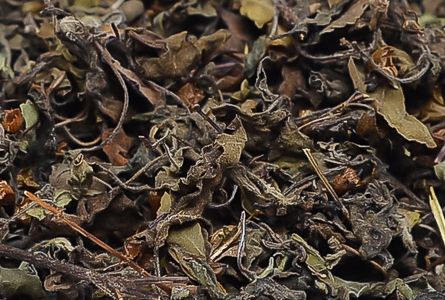
Tulsi is perhaps the most sacred plant of India nest to kamala – the lotus. The ancient Ayurvedic scriptures have mentioned the plant in the management of several diseases. The plant is supposed to have a purifying influence by liberating ozone and also is said to repel the mosquitoes. Thus, in many parts of India, the plant is grown in the courtyard, traditionally and worshipped daily as a necessary ritual for family will-being. Ayurvedic texts categories it as kasaghna – alleviates cough, svedala – induces sweating, ajirna nasaka – mitigates indigestion and agnimandya nasaka – alleviates anorexia (Bhavaprakas).
Tulsi is native throughout the Old World tropics and widespread as a cultivated plant and an escaped weed. It is cultivated for religious and medicinal purposes, and for its essential oil. It is widely known across South Asia as a medicinal plant and an herbal tea, commonly used in Ayurveda, and has an important role within the Vaishnavite tradition of Hinduism, in which devotees perform worship involving Tulsi plants or leaves..The leaves contain an essential oil, which contains eugenol, eugenal, carvacrol, methylchavicol, limatrol and caryophylline.
Tulsi is pungent and bitter in taste, pungent in the post digestive effect and has hot potency. It possesses light and dry attributes. On the contrary the seeds are oily and slimy in attributes and have a cold potency. Tulsi is a stimulant, aromatic herb and effectively reduces the fever.